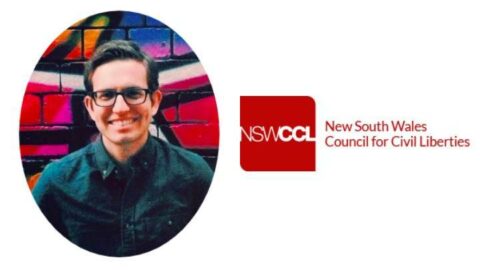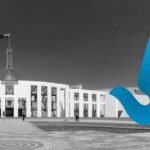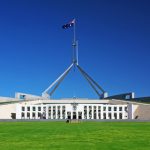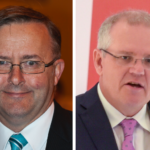“Cautiously Optimistic”: NSW Council for Civil Liberties Josh Pallas on Albanese

NSW Council for Civil Liberties president Josh Pallas wrote last week that his organisation welcomes the end of the Morrison government, while it’s “cautiously optimistic” about the coming of Albanese and the changes it could bring.
This guarded optimism seems to be the mood of the nation at present. A collective relief has swept over the Australian constituency as the Coalition government’s attempted dismantling of systems that promote human rights and equity has seemingly been brought to an end.
However, the caution that many are entertaining in relation to the new Labor government is well warranted considering that much of the most severe national security and migration laws over the last two decades have swept through parliament with bipartisan approval.
And while Albanese is moving on issues that Morrison spent his whole time in office purposefully stalling on, such as a national integrity commission, it’s yet to be seen how Labor will follow through with them – how sharp will the federal watchdog’s teeth be?
A major turning away
The 2022 federal election was distinct from all others in recent memory as it was marked by large numbers of the constituency turning away from the major parties.
While once there was an understanding that it was a waste to cast a vote for a minor party or an independent candidate, this time round, a broad consensus conceived that ticking a major box was to squander a vote.
This turning away resulted in what’s been described as a greenslide, as 12 Greens senators and 4 MPs were voted into office, along with 10 teal independent MPs – most of whom knocked seemingly safe Liberals MPs out – and environment defender David Pocock being voted into the upper house.
While there were a number of key issues that shaped this outcome, the need to act on the climate crisis was the main impetus that brought it about. Yet, despite this, Albanese seems determined to avoid any compromise with the broad, green-minded crossbench on this existential threat.
As Pallas points out, this rejection of the majors at the ballot box is likely to continue if they don’t step up during this term of parliament, which includes Labor collaborating with progressive crossbenchers on climate action, gender equity and eradicating corruption at the federal level.
The end of Morrison
The voting down of Morrison has seemingly brought an end to the Liberal Nationals decade-long assault on human rights bodies, tertiary education, gender equality and basic human decency, along with its positioning of the nation as a global climate pariah.
But its yet to be seen whether the surveillance state continues to broaden, the brutalisation of refugees and asylum seekers is ongoing, the NT Intervention will be permitted to expire, and the dozens of new fossil fuel projects slated for approval are greenlighted to the detriment of all.
Sydney Criminal Lawyers spoke to newly appointed NSWCCL president Josh Pallas about the actions of the Labor government over its first weeks in office, Peter Dutton’s rise to leader of the opposition and the major reforms the lawyer conceives will point the nation in the right direction.

The Albanese government took out last month’s federal election with a slim majority in the lower house. Josh, you’ve said the NSW Council for Civil Liberties is “cautiously optimistic” about its coming to power.
In looking back over the newly installed Labor government’s performance over its first weeks, how would you say what it’s done bodes for this guarded optimism?
My views haven’t changed, I remain cautiously optimistic. The picture of the Nadesalingam family back in Biloela over the weekend were great and social services minister Amanda Rishworth’s early end to the trial of the cashless debit card for welfare recipients was another excellent news story.
The attorney general also sounds like he’s busy at work making preparations for the introduction of a national integrity commission. So, there are definitely promising signs.
But, on the other hand, there are still boat turnbacks in breach of Australia’s international obligations, and the attorney general is already talking about bringing a new version of the Religious Discrimination Bill before parliament, which are causes for concern.
Overall, though, the tenor of the debate has been much more respectful and open which is a positive outcome for everyone.
The most significant outcome in terms of the recent national vote was the sizable turning away from the majors, which has resulted in Greens in balance of power in the Senate, as well as a large contingent of teal independent MPs in office.
What would you say this outcome tells us about the state of the nation?
The major parties have clearly been failing on issues that matter to the electorate and on community engagement.
The newly elected independents and Greens all had strong grassroots campaigns and care more about climate change – which poses a significant risk to the human rights of everyone – integrity and human rights than the major parties and have real policy ideas to meet these policy challenges.
Gender diversity and women’s rights were also front and centre of the campaign in the wake of #MeToo and the former government’s failure to appropriately address bullying, harassment and alleged assaults in parliament.
So, it’s no surprise that women with clear visions to clean up politics unseated sitting Liberal MPs, who were seen as being not vocal enough on these issues.
The major parties in federal politics are at a crossroads, they either pay heed to the electoral gains of the Greens and independents and alter their behaviour or they risk a further collapse of their vote in upcoming federal elections.
NSWCCL welcomes the end of the Morrison government. So, in terms of civil liberties and human rights, how would you sum up the legacy that the outgoing Liberal Nationals government has left us with?
The Coalition government’s human rights and civil liberties legacy is very poor and has damaged Australia’s global standing.
A couple of examples include the former government having weakened the few accountability and transparency agencies that do excellent work – like the Australian Human Rights Commission and Office of the Australian Information Commissioner – with funding cuts and attacks on their independence.
It also demonised refugees and asylum seekers and continued to extend surveillance and national security laws, which were already broad and far reaching.
And while climate change may not seem like a pressing human rights issue in Australia – when it really is – it is certainly seen as a significant human rights issue globally.
Australia’s climate denialism and failure to act in circumstances where countries in the Pacific and elsewhere are already facing real threats to lives and security today, have probably done irreparable harm to Australia’s global standing.
You’ve said that the real test for Albanese will be whether his government implements substantive reforms both in terms of the rights of the individual and more broadly, on the way our nation has been operating at the international level.
What sort of reforms do you consider the new government needs to roll out in order to improve the nation’s deteriorating rights situation?
The list is really endless, but a couple of big ones are to fully implement the Uluru Statement from the Heart, implement a national integrity commission with teeth – remember Dr Helen Haines MP already has a proposal for one ready to go, right now – implement a federal human rights act or charter and ensure Australia meets its international obligations.
These four big reforms would flow on to have very significant impacts on every other policy area, which would make changes to people’s daily lives.
What are your thoughts on Peter Dutton in the role of opposition leader? Does his appointment jeopardise these positive changes you’re suggesting?
To take the second point first, given that Labor is governing with a majority and the Greens and independents are likely to be on board with these reforms, the opposition is likely to be irrelevant if there is the political will within Labor to act on them.
But on Mr Dutton personally, there is no doubt that he’s the latest in a long line of ministers to have contributed to overseeing a cruel and dehumanising immigration and border protection policy, which has caused great harm and suffering to many.
But leaders come into their own when they take the reins, and he may surprise us?
There’s an early glimmer of hope in his appointed shadow attorney general’s apparent support for the Uluru Statement from the Heart, so maybe he will lead the Coalition in a different direction.
The early responses to the result from Liberal and National MPs and former ministers don’t, however, give me much hope.
And lastly, Josh, you also point out that Labor and the Coalition have been acting in a bipartisan manner for many years in terms of policies that have been undermining liberties and rights, and you state that a broadened crossbench could mark an end to this alliance.
Can you speak about what sort of measures both majors have been enacting in tandem and how you’d like to see crossbenchers improve this?
Two big areas are national security and asylum seeker policies. On national security, at the end of last year, the major parties voted together to create a post-sentence supervision regime for terrorist offenders.
On asylum seeker policy, we’ve seen over the last couple of weeks a continuation of boat turn back policy implementation. While the language may differ, the policy settings don’t and that’s the problem.
I hope that the crossbenchers are given adequate space and time to shine a spotlight on civil liberties and human rights failures of the government.
This means membership on important committees, like the Parliamentary Joint Committee on Intelligence and Security, more speaking time in Question Time and greater respect for independents in the House of Representatives who want to scrutinise bills before the house.
I hope that the government will actively engage with the crossbenchers in seeking to find consensus on legislation.
When our politicians work together, we all benefit.







